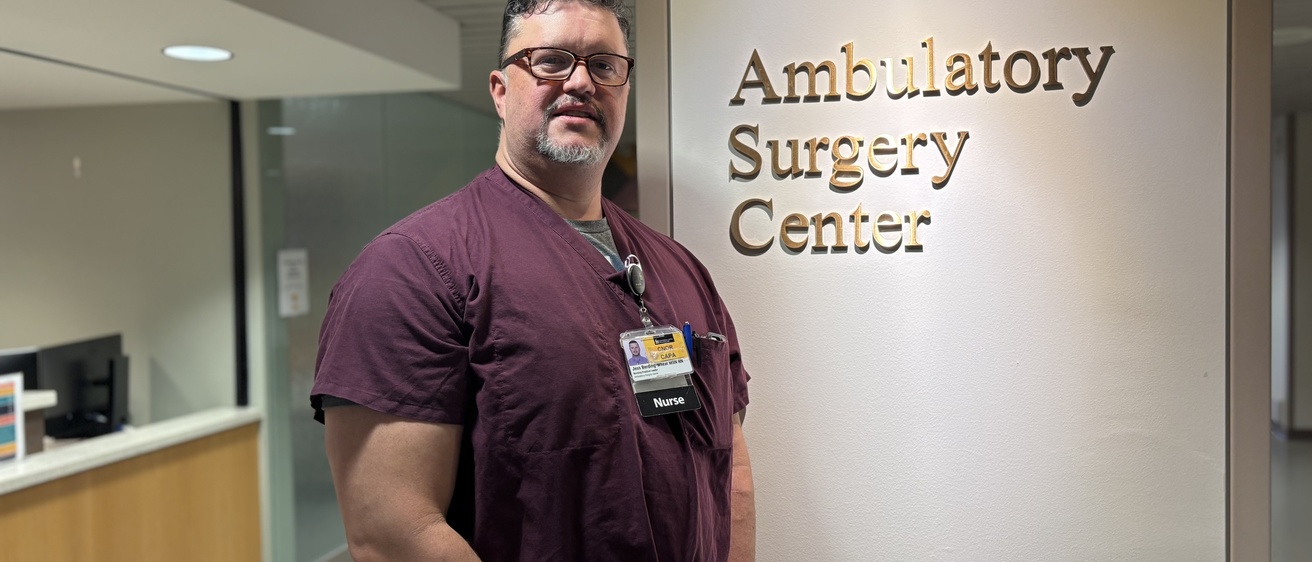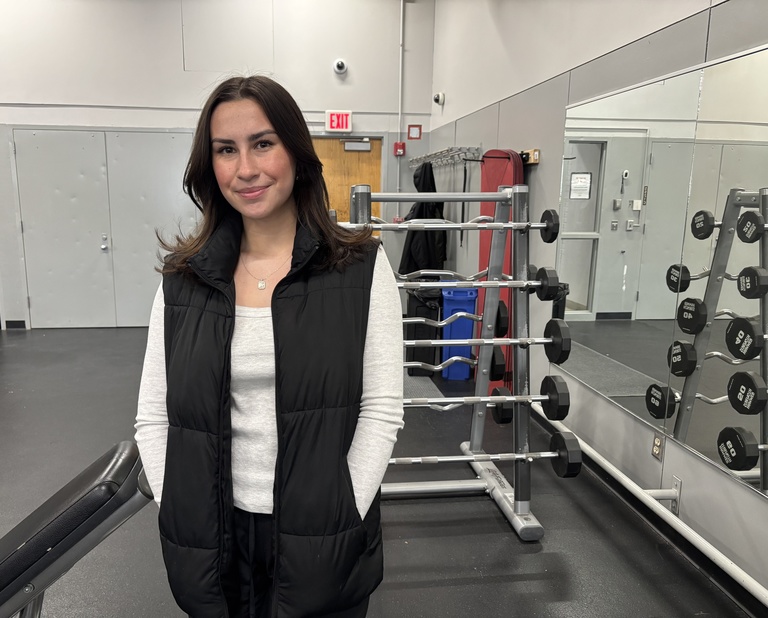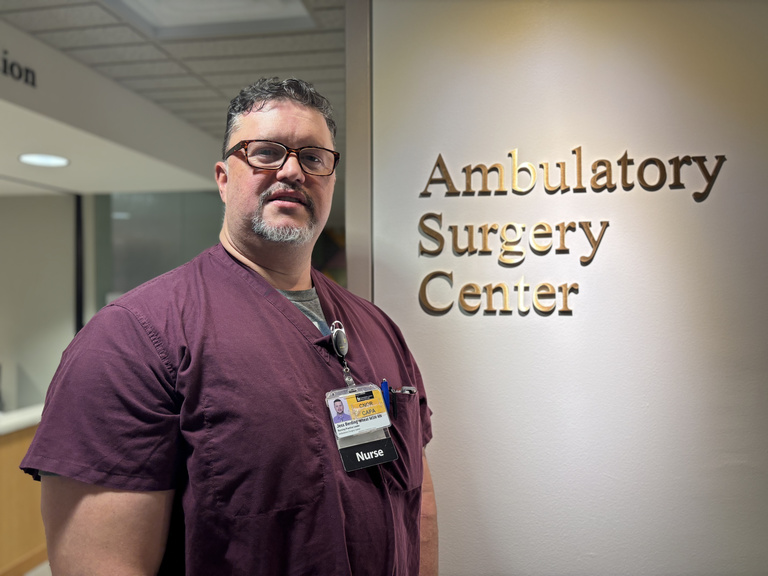Jess Berding-Wheat's father didn't live to see 60. An unhealthy lifestyle comprised of a poor diet and lack of exercise culminated in a premature death at 58.
"I'm 53," says Berding-Wheat, "and I don't want that outcome for myself or my family."
Working with a liveWELL health coach has helped him establish healthy habits around food and exercise. Incorporating mild exercise and being attentive to the calories in food have already made a difference, Berding-Wheat says.
Charlotte Feliz, a business marketing student and personal trainer, taught him exercises that were not only beneficial, but sustainable.
"I'm noticing less aches and pains already," says Berding-Wheat, a nursing practice leader in the Ambulatory Surgery Center at UI Health Care.
Completing the Personal Health Assessment (PHA) opened the door for Berding-Wheat to work with liveWELL health coach Jenny Fitzpatrick.
"Jenny has helped me reflect on the progress I've made so far and remind me of what I've accomplished and why I'm doing this," Berding-Wheat says. "Her tips on exercising have also been very helpful."
For nearly 20 years, data from the PHA has supported well-being at the University of Iowa through workplace data, campus resource allocation, and impactful programming.
The PHA is a short, confidential survey faculty and staff are asked to complete annually in an effort to encourage reflection on their personal and professional well-being. Insights from the PHA drive strategic decisions and ensure resources are allocated to meaningful programs and services like health coaching, the Emergency Hardship Fund, wellness grants, and personal training.
"When faculty and staff complete their annual PHA, we can offer expanded programs and services based on areas of need," says Erin Litton, senior director of well-being services.
Aggregate data from the PHA is shared with campus partners who use it to advocate for additional resources, conduct research, measure the effectiveness of programs and services, and enhance the culture of their department or unit.
Recently, data has shown an uptick in financial stress, leading UI Wellness to pilot financial well-being programs across campus to learn the most effective tools to support our employees. The longitudinal data collected through the PHA over decades allows the university to note trends and changes – such as financial stress and mental health – in employee well-being over time.
Data from the PHA also helped inform the decision to expand the UI Support and Crisis Line in 2024. What was once a resource only for students is now available to faculty, staff, and postdocs due in part to PHA data showing a need for more mental health services on campus. The GLP-1 weight management pilot program is also supported by data from the PHA.
Other benefits of completing the PHA include:
- Entry into a monthly drawing for two chances to win $250
- Discounted membership to recreational facilities on campus
- Free health coaching and referral programs
- Health and well-being reports tailored to you with tips for living a healthy lifestyle
- Monthly communications of well-being programs and services
You can complete this short survey in Employee Self-Service. It's intended to take 10 minutes or less and can be done during the workday.
"My meetings with Jenny were quick yet high quality," Berding-Wheat says. "I'm proud that the UI offers this service for their employees. You can tell that the UI wants to help its employees be healthy, but the individual needs to put in the work.
"Even if your exercise for the day is taking the stairs instead of the elevator, it's better than nothing," he says. "Keep moving and be proud of yourself."



